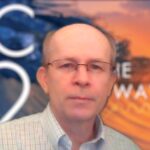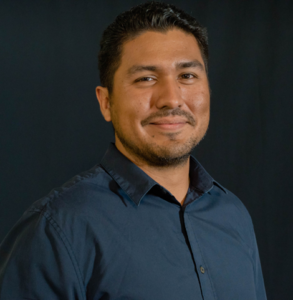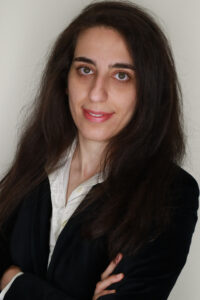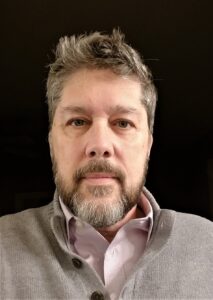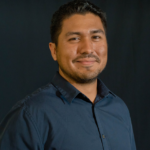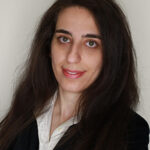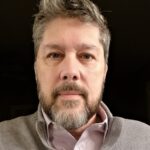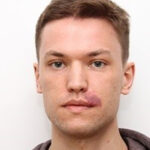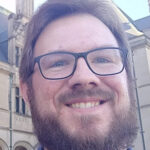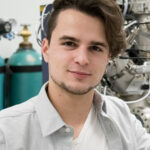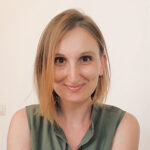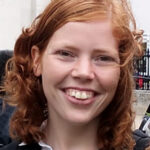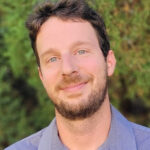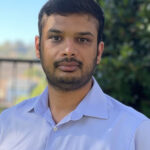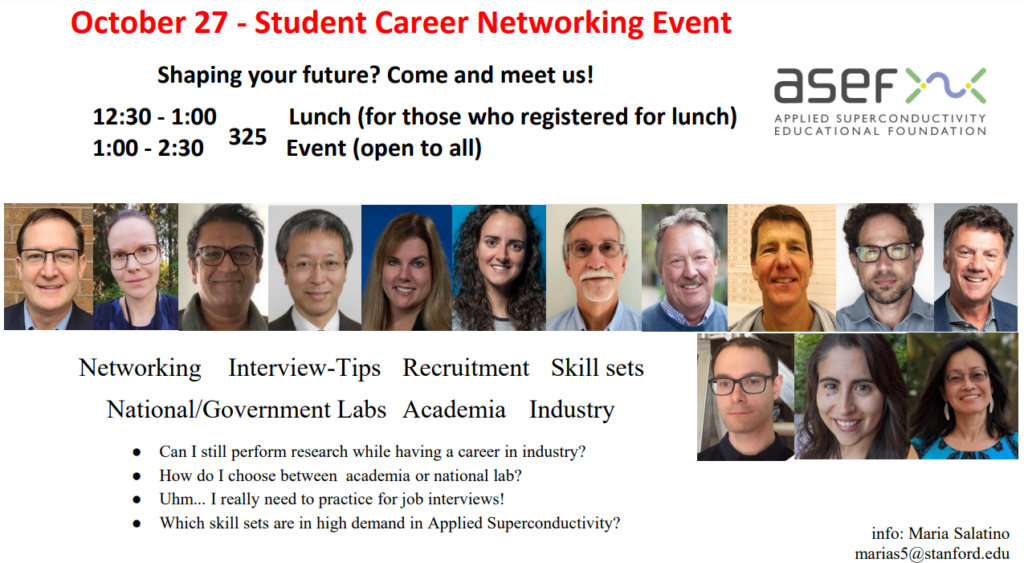Short Courses
1. Design of Superconducting Magnets for Particle Accelerators and Detectors
| Date: | Sunday, October 23, 2022 |
| Time: | 8:30 am – 4:30 p.m. |
| Location: | Hawaii Convention Center, Room 325B |
| Fee: | Full conference participant early: $300; regular: $375; onsite: $450 Student participant early: $225; regular: $275; onsite: $325 Fee includes a continental breakfast and coffee breaks. |
| Instructors: | Susana Izquierdo Bermudez and Herman ten Kate |
Course Description: This course covers the design of superconducting magnets for particle accelerators and detectors. The lectures are intended for physicists and engineers working in the areas of magnet technology and applied superconductivity, and interested in basic principles, physical parameters, analytical and numerical tools used for superconducting magnet design. For each of the applications considered, the courses will start by presenting the properties and characteristics of superconducting strands and cables. The main concepts related to magnetic design and coil lay-outs will be then outlined. In addition, the lectures will deal with the mechanics and fabrication techniques of a superconducting magnet, focusing in particular on coils and the structural components aimed at containing the electro-magnetic forces and managing the stresses. Finally, a description of the different systems devoted to cool and protect a magnet after a quench will be provided.
2. High Temperature Superconductors: From the Materials to Magnet Technology
| Date: | Sunday, September 1, 2024 |
| Time: | 8:30 a.m. – 5:00 p.m. |
| Location: | Salt Palace Convention Center – Room TBD |
| Fee: | Full conference participant early: $325; regular: $400; onsite: $475 Student participant early: $250; regular: $300; onsite: $350 Fee includes a continental breakfast, boxed lunch and coffee breaks. |
| Instructors: | Teresa Puig and Tengming Shen |
Course Description:This course addresses the current state and prospects of high temperature superconductor (HTS) technology. After three decades of arduous development, three high-Tc cuprate materials have been developed into long-length composite conductors with high critical current density at magnetic fields or temperatures beyond the reach of Nb-Ti and Nb3Sn. The scope of the course is to illustrate the close synergetic relationship between the development of a deeper understanding of the material properties and the progresses in the conductor technology, with a focus on high field magnet applications. The course is organized in four parts:
- An introduction to high temperature superconductivity;
- The basics of HTS conductor fabrication (REBCO coated conductors, BSCCO-2223 tapes and BSCCO-2212 wires), including latest developments to improve performance;
- An overview of the electromagnetic, electromechanical and thermophysical properties of tape, wire, and cable conductors;
- Critical issues and innovative design concepts for the HTS-based magnets with an overview of noteworthy ongoing projects, including magnets for >1 GHz NMR spectroscopy, high-field fusions, and the next generation of high energy particle colliders.
3. Superconducting Power Devices and Cryogen-Free HTS Magnets
| Date: | Sunday, September 1, 2024 |
| Time: | 8:30 a.m. – 5:00 p.m. |
| Location: | Salt Palace Convention Center – Room TBD |
| Fee: | Full conference participant early: $325; regular: $400; onsite: $475 Student participant early: $250; regular: $300; onsite: $350 Fee includes a continental breakfast, boxed lunch and coffee breaks. |
| Instructors: | Tabea Arndt, Antonio Morandi, Kiruba S. Haran |
Course Description: Power devices using Superconductors (especially High-Temperature Superconductors HTS) can be designed to have outstanding performances e.g. very high capacitiy, efficiency and/ or compactness. However, design and engineering have to be adopted to access the full potential using HTS. The short course on Superconducting Power Devices will be organized in four slots covering:
- Superconductivity for electric power grid – power cables, transformers and fault current limiters, part 1 (AM)
- Superconductivity for electric power grid – power cables, transformers and fault current limiters, part 2 (AM)
- Superconducting rotating machines (KH)
- Cryogen-free HTS magnets (TA).
The short course will cover the basic design of each application and present appropriate case studies underpinning the designs. The short course will provide an overview on present limitations, future directions and research needs in the field of these Superconducting Power Devices.
4. Superconducting Electronics
| Date: | Sunday, September 1, 2024 |
| Time: | 8:30 a.m. – 5:00 p.m. |
| Location: | Salt Palace Convention Center – Room TBD |
| Fee: | Full conference participant early: $325; regular: $400; onsite: $475 Student participant early: $250; regular: $300; onsite: $350 Fee includes a continental breakfast, boxed lunch and coffee breaks. |
| Instructors: | John Clark, Steve Anlage, Nobuyuki Yoshikawa, Britton Plourde, Kent Irwin |
Introduction to Josephson Junctions and SQUIDS Course Description: TBD
RF Superconductive Electronics Course Description: This tutorial session will begin with a quick review of the basics of superconductivity and BCS theory, with a focus on electrodynamic properties. Discussion of complex conductivity and surface impedance, both in the Meissner-state and in the mixed state with magnetic vortices. We then introduce applications that make use of the unique electromagnetic properties of superconductors, including high-Q superconducting radio frequency cavities for particle accelerators, as well as planar high-Q resonators, microwave kinetic inductance detectors, low insertion-loss microwave filters, and Josephson-based travelling wave parametric amplifiers.
Superconducting Digital Circuits Course Description: Superconducting digital integrated circuit technology has been attracting attention in recent years not only for high-performance computing applications due to its high speed and low power consumption but also as an interface for quantum computers and as readout circuits for superconducting detector arrays. The goal of this course is to understand the fundamentals of superconducting digital electronics and to become acquainted with the latest research developments and future trends in this field. Initially, we will cover the principles of superconducting digital integrated circuits, including Single Flux Quantum (SFQ) and Adiabatic Quantum-Flux-Parametron (AQFP) circuits. Subsequently, we will review the latest research progress in these technologies. Lastly, the current technical challenges and the anticipated future trends will be discussed.
Physics and Engineering of Superconducting Qubits Course Description: Superconducting qubits are one of the leading systems for implementing a quantum computer. There have been significant advances in the performance of these Josephson junction-based circuits over the past two decades, and there is currently rapid progress in the development of systems with more than 100 qubits. In this short course, we will discuss the design principles for building qubits from superconducting elements and implementing quantum gates. We will discuss various decoherence mechanisms and limits to gate fidelities. Looking forward, we will consider challenges associated with scaling to large-scale quantum processors based on superconducting circuits.
Quantum Sensing Course Description: TBD
5. Testing Superconducting Magnets
| Date: | Sunday, September 1, 2024 |
| Time: | 8:30 a.m. – 5:00 p.m. |
| Location: | Salt Palace Convention Center – Room TBD |
| Fee: | Full conference participant early: $325; regular: $400; onsite: $475 Student participant early: $250; regular: $300; onsite: $350 Fee includes a continental breakfast and a coffee break. |
| Instructors: | Kévin Berger and Rémi Dorget |
Course Description: The aim of this course is to introduce participants to the various theoretical and practical aspects of the design and modeling of superconducting applications such as electrical machines involving bulk superconductors and power cables based on High Temperature Superconducting materials (HTS). A general state of the interest of such applications will first be established through several concrete examples. Then, the key elements of the modeling of these systems and different numerical tools will be presented, including the necessary databases. Finally, two real-life cases will be presented in more detail: the use of a DC HTS cable in the French railway network and the design and manufacture of an HTS motor for aircraft applications.
Short Course Instructors
Steven M. Anlage is a Professor of Physics and member of the Quantum Materials Center, as well as faculty affiliate of the Departments of Electrical and Computer Engineering, and Materials Science and Engineering, at the University of Maryland, College Park. He received his B.S. degree in Physics from Rensselaer Polytechnic Institute in 1982, and his M.S. and Ph.D. in Applied Physics from the California Institute of Technology in 1984 and 1988, respectively. His post-doctoral work with the Beasley-Geballe-Kapitulnik group at Stanford University (1987 – 1990) concentrated on high frequency properties of high temperature superconductors. In 1990 he was appointed Assistant Professor of Physics in the Center for Superconductivity Research at the University of Maryland, then (1997) Associate Professor, and finally (2002) Full Professor of Physics. He was the interim Director of the Center for Nanophysics and Advanced Materials (2007-2009), and is a member of the Maryland NanoCenter. In 2011 he was appointed a Research Professor at the DFG-Center for Functional Nanostructures at the Karlsruhe Institute of Technology in Germany, and in 2019 a Visiting Fellow at the Institute of Advanced Studies at Loughborough University.
His research in high frequency superconductivity has addressed questions of the pairing state symmetry of the cuprate and heavy fermion superconductors, the dynamics of conductivity fluctuations and vortices, and microwave applications including several generations of superconducting metamaterials, most recently studying rf SQUID metamaterials. He has also developed and patented a near-field scanning microwave microscope for quantitative local measurements of electronic materials (dielectrics, semiconductors, metals), and developed a version that images the local nonlinear properties of superconductors. Prof. Anlage utilizes superconductors to enhance studies of photonic topological insulators and wave-chaotic microwave resonators.
Dr. Anlage is a member of the American Physical Society, the IEEE, and the Materials Research Society. His research is funded by the US National Science Foundation, the US Department of Energy, and the US Department of Defense.
Tabea Arndt holds a PhD in Physics from the University of Karlsruhe, Germany. After working at Vacuumschmelze GmbH/ Hanau, EAS & EHTS /Hanau, Bruker Biospin/ Hanau and Siemens Corporate Technology/ Erlangen, in 2019 she joined KIT/ Karlsruhe/ Germany, faculty of Electrical Engineering and Information Technology as a co-director of the Institute of Technical Physics leading the research field “Superconducting Magnet Technology”. She worked in a variety of public funded and industrial projects (NMR-s, MRI-, laboratory and industrial magnets and applications in Electrical Engineering like SFCL, Motors/ Generators and cables). She was member/ board member/ chairperson of Conectus, ISIS and representative to ESAS and now serves as the curator of the German Ministry of Economy and Climate’s Research Field “High-Temperature Superconductivity” in “Energy Efficiency in Industry”. Since 2008 she is a delegate to the IEA TCP HTS. For a number of years she served as a member/ deputy chair of an engineering review panel for ERC-grants and as a reviewer for several foundations and state organizations. Since 2021, her research field at ITEP coordinates a collaborative research project on HTS and liquid hydrogen within the German National Hydrogen Strategy. Recently, the research team is adressing challenges in applications of windings and magnets based on 2G-HTS, again.
In 2023, the “Award for Continuing and Significant Contributions in the Field of Applied Superconductivity, Large Scale” was awarded to her at the MT conference, Aix-en-Provence, France.
Kévin Berger received the M.S. and the Ph.D. degree in electrical engineering from the Université Henri Poincaré, Nancy, France, in 2002 and 2006 respectively. His main research topics concern the study of superconducting cables in the railway network and the magnetization of HTS bulks for practical applications such as electrical motors. He is also interested in the potential new bulk materials such as YBCO foams, MgB2 and iron-based superconductors.
After his Ph.D. in 2016, he worked two years at G2ELab and Néel Institute in Grenoble with Prof. Pascal Tixador on the design and realization of an 800 kJ HTS SMES, the first conduction-cooled SMES realized in Europe. Having spent one year in the industry (Exxelia Group) designing magnetic components for aircraft and space applications, he reached an associate professor position at the University of Lorraine, Group of Research in Electrical Engineering of Nancy (GREEN), in France since 2010. He is the author of five book chapters and more than sixty peer-reviewed international journal articles. He is still involved in the development of analytical and numerical tools and is the organizing Committee Chair of the 8th edition of the International Workshop on Numerical Modelling of High Temperature Superconductors, to be held in Nancy, France, from June 14th to 16th, 2022, https://htsmod2022.sciencesconf.org.
Dr. Berger is currently engaged in two H2020 projects: IMOTHEP related to the “Future propulsion and integration: towards a hybrid/electric aircraft” and SMAGRINET regarding “Smart grid competence hub for boosting research, innovation and educational capacities for energy transition”, https://www.smagrinet.eu. Since many years, he is an expert in the TC 90 of the International Electrotechnical Commission (IEC) which prepare International Standards (IS) related to superconducting materials and devices.
John Clark – TBD
Rémi Dorget was born in Saint-Maur-des-Fossés, France in 1996. He received the M.S. degree in electrical engineering from the University of Lorraine, Nancy, France, in 2019. He is currently PhD candidate with Safran tech in the “Electrical and Electronic Systems Research group” and the University of Lorraine within the “Groupe de Recherche en Energie Electrique de Nancy, GREEN”. His research topics are the design, the construction and the tests of superconducting electrical machines for aircraft applications.
Pascal Febvre has been working on superconducting electronics since 1991 after receiving his diploma of Physics and Chemistry from the Ecole Supérieure de Physique et Chimie Industrielles de la ville de Paris (ESPCI). He developed THz superconducting (SIS) receivers at the Observatory of Paris in France from 1991 to 1997 for balloon-borne experiments with the French, Swedish and European Space Agencies, and at Jet Propulsion Laboratory (NASA) in Pasadena for an airborne experiment in 1992-1993. He joined the laboratory of Microwave and Characterization at Université Savoie Mont Blanc in France in 1997 as a tenure-track associate-professor to work on fast superconducting digital electronics (SFQ electronics) for scientific and telecommunication applications. Current developments are focused on digital magnetometers for geophysics applications and software tools for digital circuits. P. Febvre has authored over 180 international journal and conference papers. He is Senior Member of IEEE and President of the European FLUXONICS Society since 2013. He is involved since 2004 in the dissemination of superconducting electronics in Europe through the regular organization of workshops, conferences and summer schools.
Kiruba S. Haran (Fellow, IEEE) received the B.Sc. degree in electronic and electrical engineering from Obafemi Awolowo University, Ile-Ife City, Nigeria, in 1994, and the Ph.D. degree in electric power engineering from Rensselaer Polytechnic Institute, Troy, NY, USA, in 2000.
He is a Professor of electrical and computer engineering with the University of Illinois, Urbana– Champaign, Urbana, IL, USA. He spent 13 years with GE Research, Niskayuna, NY, USA, as a Senior Engineer and a Manager with Electrical Machines Laboratory devloping and validating megawatt scale superconducting machines for airborne power systems. His research interests include high-specific-power electrical machines and drives, with both superconducting and noncryogenic approaches. He has over 20 years of experience in developing electric machinery and is a co-founder of Hinetics LLC (spin-off of UIUC) focusing on compact air-core electric technology.
Kent Irwin – TBD
Susana Izquierdo Bermudez is currently a staff scientist in the Superconducting Magnets and Cryostats Group at the European Organization for Nuclear Research (CERN) in Geneva. After graduating in Energy and Mechanical Engineering at the University Carlos III of Madrid, Leganes, Spain, in 2010, she joined the CERN Magnet group to work on the preparation activities for the Large Hadron Collider (LHC) First Long Shut down. In 2012 she started working in the Magnet Design and Technology Section, on the development of high field Nb3Sn accelerator magnets. Since 2020, she is responsible of the Nb3Sn inner triplet quadrupole magnets for the HiLumi LHC.
Mr. Mikko Kiviranta received his MSc in Technical Physics from the Helsinki University of Technology (now Aalto University) in 1992. He is a graduate school dropout. He currently holds the position of Principal Scientist at the VTT Technology Research Centre of Finland Ltd. He has designed dc SQUIDs and worked with SQUID-based systems for more than three decades, from doi:10.1007/978-1-4613-0581-1_150 to doi:10.1063/5.0066240, with an emphasis on the practical aspects of the SQUID use.
Thomas George McConkey joined IBMQuantum three years ago as a microwave design engineer, working on a number of quantum chip designs and developing the open source quantum-EDA tool, Qiskit Metal. Thomas had completed a PhD in 2018 at the University of Waterloo / IQC on the project of ‘Extensible Architecture for Superconducting Quantum Computing’ as a member of the Digital Quantum Matter group. Additionally, he took part in a number of science outreach activities, ranging from running of ‘cryogenic experiments’ for IQC summer school programs to consulting on ‘QUANTUM: The Exhibit’.
Antonio Morandi holds a PhD in Electrical Engineering. Since 2006 he is with the Department of Electrical, Electronic and Information Engineering where is professor of Electrical Engineering, Electric Energy Storage and Applied Superconductivity. He is supervisor of PhD programs on Applied Superconductivity. His research interests are on power applications of High Temperature Superconductors and advanced energy systems. He has coordinated several research projects in this field funded by Public Agencies and by private companies and has contributed to the prototyping of superconducting power apparatus (FCL and SMES) and to the development of modelling and design tools. Antonio Morandi is author of more than 60 technical papers published in international journals and conferences. He is inventor of three patents. He is reviewer of research projects in the energy sector for the European Commission, the Italian Ministry of University and Research and foreign research institutes. He has given several invited talks at international conferences and research associations and is member of several program committees in international conferences. Antonio Morandi is member of the ESAS – European Society for Applied Superconductivity board. He is member of the Italian mirror Committee IEC TC90 – Superconductivity and is member of the International Steering Committee on HTS Modeling. He has been the chairman of International Workshop HTSModelling2016 and has co-chaired the 16th European Conference on Applied Superconductivity – EUCAS 2023, Bologna, Italy from 3 – 7 September 2023. He is a senior member of IEEE and serves as associate editor for IEEE Transaction on Applied Superconductivity.
Britton Plourde received a Ph.D. in physics from the University of Illinois at Urbana-Champaign in 2000 studying vortex dynamics in superconductors. From 2000 to 2004, he was a postdoctoral scholar at the University of California, Berkeley where he worked on experiments with superconducting flux qubits. In 2005, he joined the Department of Physics at Syracuse University where he runs a low-temperature research lab investigating various aspects of superconducting circuits for quantum information processing. Plourde’s key contributions to the physics and operation of superconducting qubits and related circuits include the development of tools for qubit control and readout, and investigations of decoherence mechanisms and mitigation techniques for improved qubit performance. Prof. Plourde is a Fellow of IEEE, and he received a CAREER award from the NSF and an IBM Faculty Award. From 2013-2019 he was the Editor-in-Chief for IEEE Transactions on Applied Superconductivity, and from 2021-2022 he was the Editor-in-Chief for IEEE Transactions on Quantum Engineering.
Teresa Puig, PhD in Physics, is Research Professor and group leader of the Superconducting materials group at the Institute of Materials Science of Barcelona (ICMAB-CSIC). She is the head of the Department of Superconducting Materials since 2008. She has served as elected board member of the European Society of Applied Superconductivity (ESAS) since 2007 and Board member of IEEE – CSC (Council of Superconductivity) since 2013. She has worked on High Temperature Superconductors (HTS) for the last 30 years, contributing in advanced thin film growth, vortex physics and integration of HTS in applications. Since the beginning of Coated Conductors (CCs) research, her group pioneered the use of low cost chemical solution methods and strongly contributed to the understanding of vortex pinning. She has always been interested in building bridges between academic knowledge and industrial needs, which also enabled many collaborations with industry. She was co-founder of Oxolutia S.L. (2010-2020) devoted to oxide superconducting coatings. Lately, she is very interested in high throughput processes for the fabrication of coated conductors and their customization for applications in energy and high energy physics, with strong collaborations with CERN. She is an ERC advanced holder who has led and contributed to prominent European and international projects and participated in numerous forums and meetings, as well as received several national awards.
Tengming Shen is currently a physicist staff scientist with the Berkeley Center for Magnet Technology at the Lawrence Berkeley National Laboratory, where he researches and develops LTS and HTS superconducting magnets and materials for particle accelerators, particle beam therapy, fusion, nuclear physics, and ultrastable cryogenic microscopes. Between 2010 and 2015, he was a Peoples Fellow and a scientist with Fermilab. Dr. Shen obtained his PhD in electrical engineering in 2010 at the Florida State University with a thesis on Ag/Bi-2212 round wires and magnets at the National High Magnetic Field Laboratory. His work with HTS materials and magnets has earned him several awards, including an early career award from the U.S. Department of Energy, Peoples Fellowship from Fermilab, Cryogenic Materials for Excellence award from the International Cryogenic Materials Conference, and Roger Boom Award from the Cryogenic Society of America. He has been active at ASCs, and serves as a board member and the materials program chair for the ASC2022. He taught the short courses on HTS superconducting materials and magnets at the ASC2016 and ASC2020 and enjoyed the experience.
Herman ten Kate (Dutch, born in 1955) is Emeritus Professor at the University of Twente where he was educated and stared his carrier in 1980; since 1997 occupying the Chair of Industrial Application of Superconductivity. In addition he worked at CERN from 1996 until his retirement in April 2020 as Magnet System Project Leader of the ATLAS Experiment, comprising the world’s largest operational superconducting magnet of three huge toroidal magnets and a solenoid. With his team he supported other detector magnet developments and coordinated dedicated R&D for new particle physics experiments like for the Future Circular Collider, linear colliders as CLIC/ILC, antimatter detector PANDA, neutrino detector BabyMIND and solar axions detector (Baby)IAXO. He continued his work at CERN as honorable member and contributing retiree at the Experimental Physics Department. In July 2013 he received the IEEE lifetime Award for Continuing and Significant Contributions in the Field of Applied Superconductivity. At the University of Twente he continued his work for guiding PhD students, participating in various magnet review committees, and supporting various R&D projects in collaboration with industries and institutes around the globe.
Nobuyuki Yoshikawa currently serves as a professor at the Institute of Advanced Sciences (IAS) at Yokohama National University (YNU), where he leads the superconductivity electronics group. He earned his Ph.D. in Electrical and Computer Engineering (ECE) from YNU in 1989 and has since been affiliated with YNU’s ECE Department. His research primarily centers on superconductive devices and their integration into digital and analog circuits. Presently, his focus is on developing highly energy-efficient superconducting digital circuits, particularly those that employ Adiabatic Quantum-Flux Parametron (AQFP) and Single Flux Quantum (SFQ) logic, with an aim towards high-performance computing applications. Yoshikawa has authored or co-authored over 300 journal publications. In 2023, he was honored with the IEEE Council on Superconductivity (CSC) Award for Continuing and Significant Contributions in the field of applied superconductivity. He is a Fellow of the IEEE.
